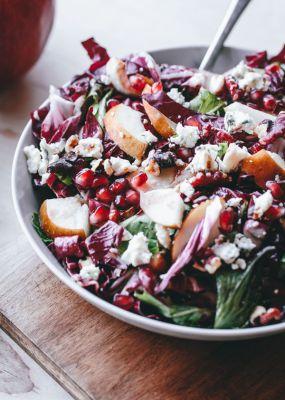Gluten-free is the buzzword in the diet industry. It is a protein found in many grains, such as wheat, barley, and rye. Foods like bread, pasta, pizza, and cereal may have tons of it. But it isn’t safe for some people, despite being a food nutrient. Longevity Live Paid Content.
According to statistics, 6% of Americans are intolerant to this food component. Obviously, they have good reasons to avoid it, ranging from celiac disease to gluten sensitivity to potential health benefits. How can you start your gluten-free journey when almost every second product in the typical American diet has it?
Rest assured, you can follow some easy eating tips and tricks to help you transition to this diet smoothly. Get ready to embrace a new lifestyle and enjoy a world of delicious, wholesome, and gluten-free options. Here is some expert-recommended advice you can rely on.
Educate yourself
Educating yourself about gluten and its food sources is the first step to avoiding it. Gluten is a protein in wheat, barley, rye, and grain derivatives. It adds elasticity to dough, making it an essential component of various food products.
Besides knowing what to avoid, you should also learn about common gluten-free foods. Rice, quinoa, maize, and potatoes are the best options to go without it. You should also understand why some people must avoid this protein completely. It is critical to be familiar with the related health conditions to diagnose whether you are intolerant in the first place.
Prioritize whole foods
A gluten-free diet is not about replacing this food component with processed substitutes. You need to pick and choose wisely, opting for the healthiest alternatives. Prioritize whole, naturally gluten-free foods such as fruits, vegetables, lean meats, and fish.
Talk to experts to get a list of better options. For example, you can also substitute brown rice for wheat pasta or lettuce wraps for bread when making sandwiches.
Check the ingredients when ordering meals
Being intolerant to a food ingredient doesn’t mean that you cannot eat out or order takeaway. Fortunately, there are plenty of options for gluten-free dieters these days, considering countless Americans are adopting this diet.
Inquire about your menu options and ingredients when dining out or ordering meals. Chefs can make substitutions or modifications to accommodate your requirements at restaurants. You can get the same done while ordering online. You must be diligent and forthright about your dietary restrictions.
Experiment with recipes
Cooking at home allows you complete control over your meals. If you are a culinary enthusiast, it is your chance to experiment with gluten-free cooking. Numerous recipes are available online, so you can find a goldmine if you are ready to research. You can also order ready-to-eat gluten-free meals if you want to add variety to your table without spending lots of time cooking. These meals are a great option for busy people.
On the days you want to cook, you can try unique recipes such as gluten-free pancakes and cauliflower crust pizza. You can experiment with spices and ingredients to broaden your repertoire and discover new flavors.
Learn to read labels
Reading food labels is essential because one should know what they are putting on their plates. Whether you have specific nutritional goals or want to avoid some ingredients due to allergies, label-reading is a skill you can rely on.
Gluten may not be mentioned on the labels directly. It can also appear as wheat starch, hydrolyzed wheat protein, or malt extract. Reading labels carefully ensures that you do not consume it inadvertently.
Consult an expert
As a diet novice, you may be unsure about navigating the complexities of a gluten-free diet. Why not consult a registered dietitian or nutritionist? They can give you personalized advice and offer meal planning help. These specialists ensure that you are meeting your nutritional needs while going gluten-free.
They can also help you identify possible sources of hidden gluten. Further, they can give an eating plan tailored to your specific goals and dietary preferences.
Be persistent and patient
Switching suddenly to a gluten-free diet can be challenging. You may consume unwanted ingredients from unexpected sources or lose access to your favorite gluten-containing foods. You should, however, be patient with yourself and persevere in your efforts.
Keep learning about alternatives and be ready to try different foods. You can do it with recipe testing and the discovery of new products. Remember that the lifestyle is a journey, and each step brings you closer to your goals.
Conclusion
With these food tips and strategies, you can maintain a healthy and balanced diet minus loads of gluten in your daily diet. Be ready to broaden your culinary horizons and live a lifestyle compatible with your health goals and dietary requirements. The right approach makes the road much easier.





![women [longevity live]](https://longevitylive.com/wp-content/uploads/2020/01/photo-of-women-walking-down-the-street-1116984-100x100.jpg)










